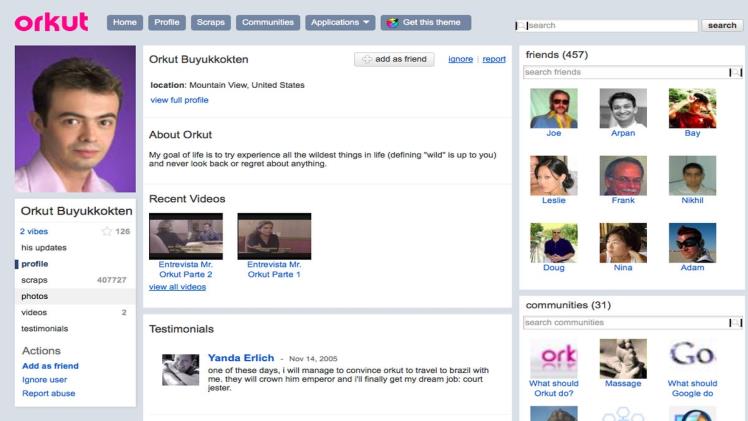Google Shuts Down Social Networking Site Orkut

Google launched Orkut in 2004 and named it after Turkish software engineer and product manager Orkut Buyukkokten. On September 30th, users will no longer be able to use the site; however, public communities created on it will remain accessible in some form after that date.
Orkut was launched in 2004 and quickly gained traction in Brazil and India, though its growth outside these countries has been slower than that of Facebook.
visit for multiple topics news: Appvalleyall and 3chibiz
Orkut offers the concept of “circles,” where users can create communities around specific interests and post messages and photos. Users also have access to videos from YouTube or Google Video as well as polls that community members can vote on.
New users fill out pastel-blue forms about what they enjoy doing and upload photographs of themselves in alluring or intimidating poses. They can also join “Communities” that interest them, such as Photography (3,449 members), Belgian Beer (114 members), or Kosher Roommates (“for coping or recovering roommates of Kosher adherents”; 3 members).
Facebook, on the other hand, has a predetermined set of actions users can take to engage with others on its site. Orkut offers an open-ended model where users connect on their own terms; however it has been criticized for its focus on dating and lack of features tailored specifically towards matching users’ interests.
On Orkut, there are many fake profiles and the service has been targeted by Brazilian authorities for illegal gang activity that led to legal action. In 2006, a judge ordered Google to provide information regarding accounts linked to racist and pornographic posts on the site.
In an effort to prevent abuse and security problems, Orkut has taken steps to enhance their systems. They added features that enable people to send messages directly to a group of friends without copying and pasting the message multiple times, as well as enhanced their ‘privacy in groups’ function.
The company has also recently introduced mobile versions of its site and a lighter version for slow Internet connections. Furthermore, it has made changes to how user data and passwords are stored, eliminating some outdated annoyances such as having someone be a friend before viewing a profile.
Orkut remains a popular website in Brazil and India, boasting some advantages over other social networks such as its ability to link people’s photos with their names. However, its growth outside these countries has not been as rapid, suggesting its appeal may be declining.
Orkut had a number of security issues, such as phishing scams and hacking. In 2010, an Orkut virus spread through Brazil that has been linked to some malware attacks on Microsoft Windows. Therefore, users are advised to use a strong password, update their security settings regularly, and keep all devices up-to-date.

